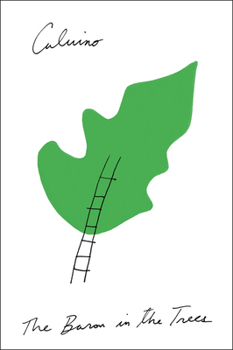Book Overview
Calvino's classic fable about independence, following a boy who climbs up a tree to spend the rest of his life in an arboreal kingdom, translated by acclaimed translator Ann Goldstein
Cosimo di Rond , a young Italian nobleman of the eighteenth century, rebels against his parents by climbing into the trees and remaining there for the rest of his life. He adapts efficiently to an existence in the forest canopy--he hunts, sows crops, plays games with earth-bound friends, fights forest fires, solves engineering problems, and even manages to have love affairs. From his perch in the trees, Cosimo sees the Age of Enlightenment pass by and a new century dawn. The Baron in the Trees exemplifies Calvino's peerless ability to weave tales that sparkle with enchantment.
"The Baron in the Trees one of the most haunting images of rebellion, of determined nay-saying, that exists in the literature of this rebellious century....I can think of no finer writer to have beside me while the world ends." --Salman Rushdie
"A tour de force in Calvino's oeuvre." --Martin McLaughlin






